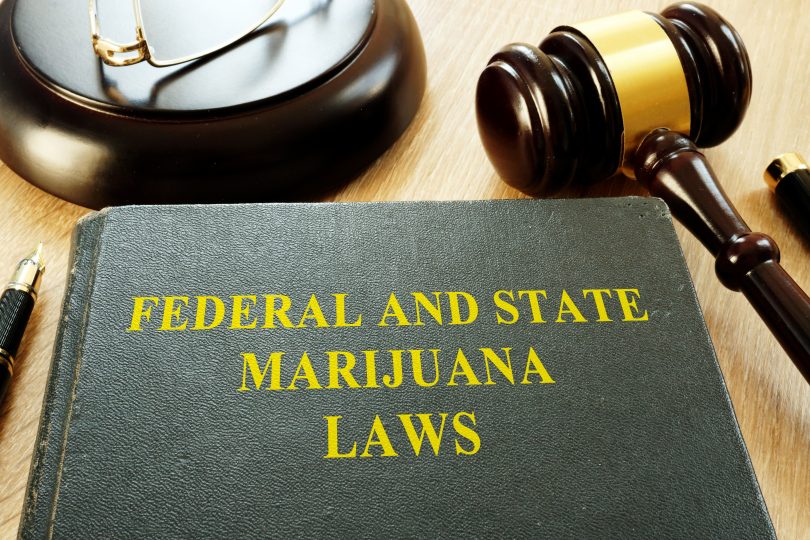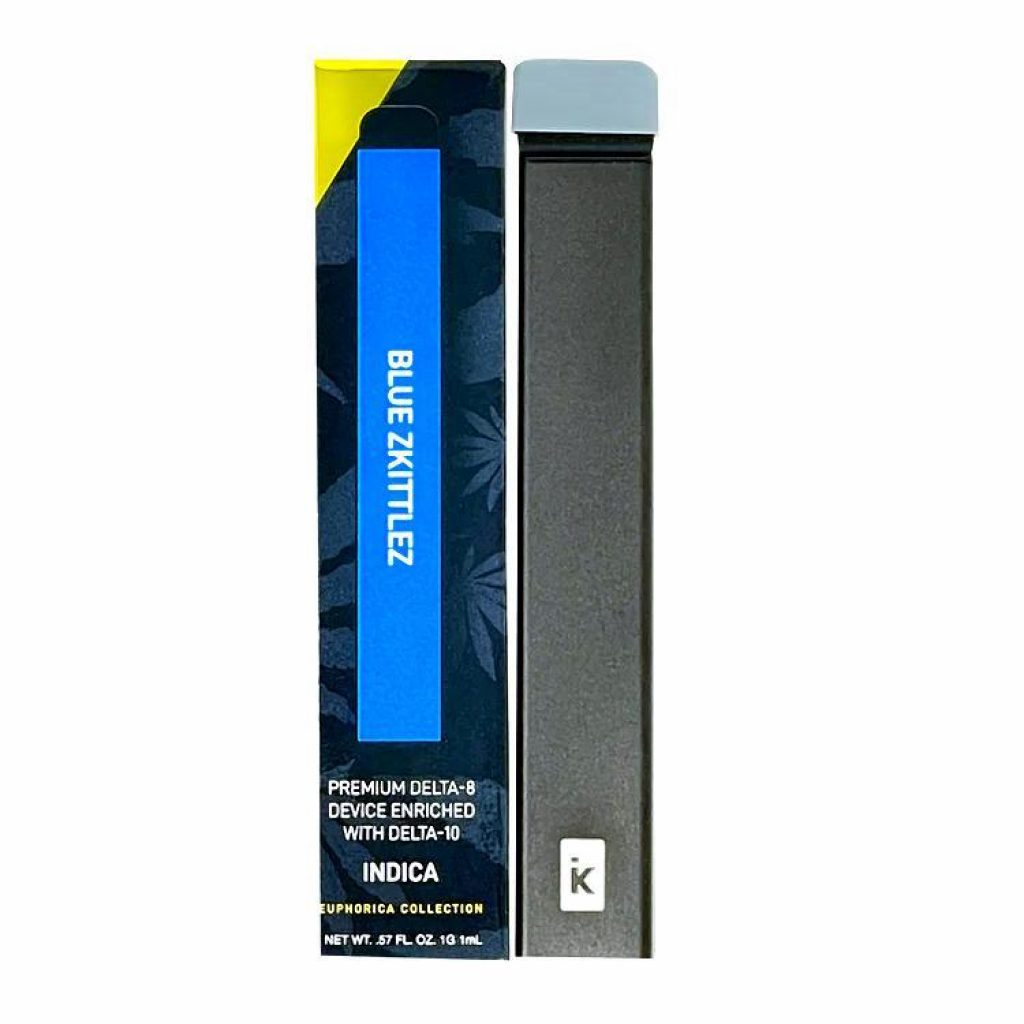The internet is abuzz with talk of the newest THC to hit the market, delta-10, but unlike it’s more well-known THC alternative delta-8, the recent DEA Interim Final Rule and USDA final rule, have done nothing to increase the legality of delta-10.
The family of THC is growing, with newer version delta-8 THC becoming a rather big deal recently. Why? Because unlike delta-9 THC, it produces less psychoactive effect, and a more clear-headed experience. In fact, we’ve got some great delta-8 THC deals for you to try it out yourself.
Have you ever tried Delta-10 THC?
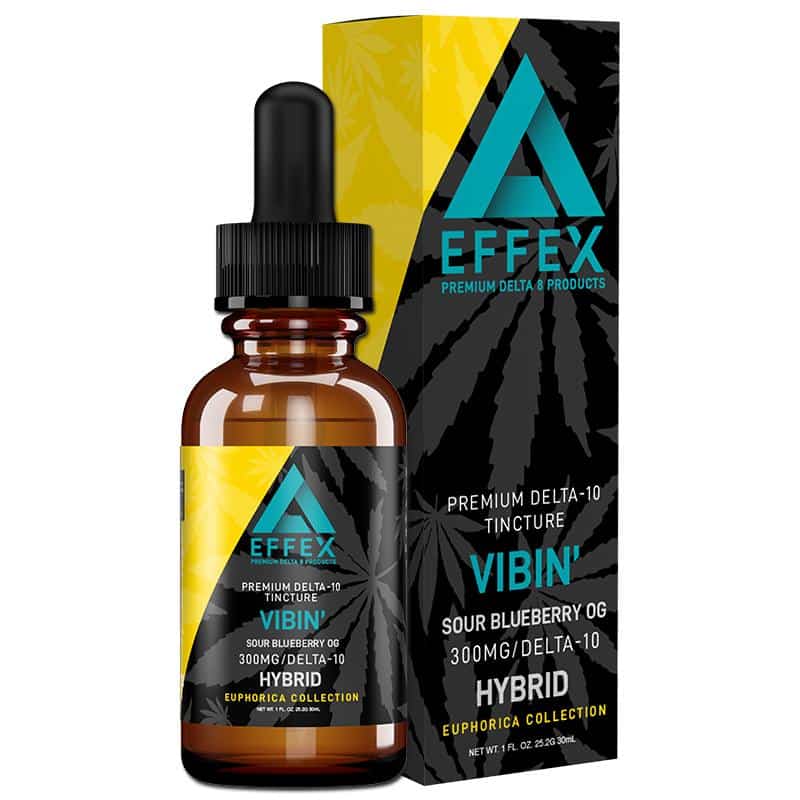
When it comes to the legality of cannabis, and compounds like delta-8 and delta-10 THC, things can get confusing. While it seems there is much misunderstanding on the differences between the newest members of the THC family to make it to the public – delta-8 THC and delta-10 THC – there is one fundamental difference between the two which effects legality, and puts delta-10 in a different category.
Delta-8 THC does fall into the industrial hemp loophole according to some – though this is technically STILL up for debate, but delta-10 actually does not, and does indeed remain federally illegal. And it’s not unclear legislatively. Let’s take a look at why.
2018 US Farm Bill
First, let’s take a look at the legislation that brought delta-8 THC into the spotlight. Delta-8 THC is a naturally occurring, oxidized version of delta-9 THC, the standard THC of marijuana. What this means is that when delta-9 comes into contact with oxygen, small amounts (and we’re talking extremely small amounts), lose electrons, to form a slightly different, and more stable compound, delta-8 THC.
The delta number – 8 or 9 – refers to where the double carbon bond occurs on the chain, with it falling on the 8th atom for delta-8, and the 9th for delta-9. The most important takeaway so far? It occurs naturally on its own, and does not need to be made in a lab.
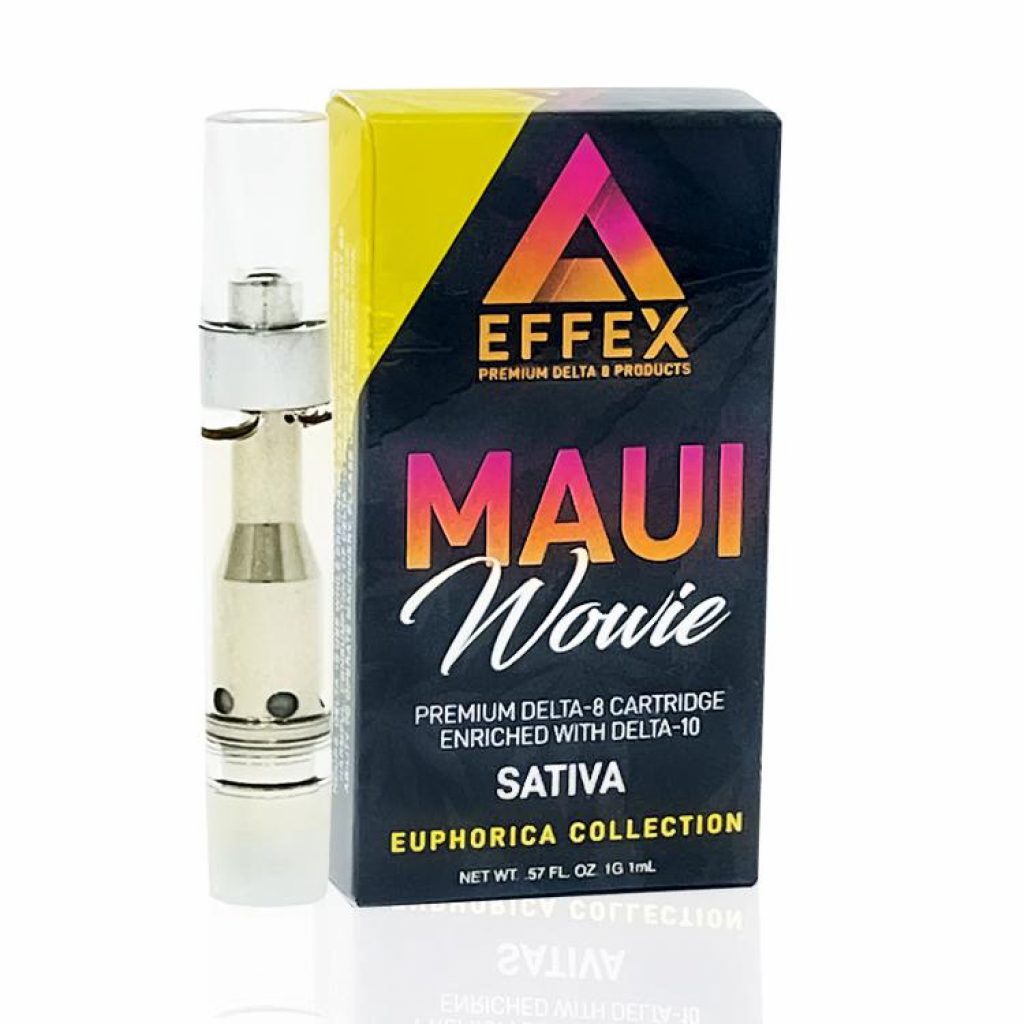
The 2018 US Farm Bill legalized the production of hemp products so long as the THC content is no more than .3%. As per the law, the definition of hemp is “the plant Cannabis Sativa L. and any part of that plant, including the seeds thereof and all derivatives, extracts, cannabinoids, isomers, acids, salts, and salts of isomers, whether growing or not, with a delta-9 tetrahydrocannabinol concentration of not more than 0.3 percent on a dry weight basis.”
Since delta-8 THC can be sourced from any delta-9 THC, whether it comes from high-THC marijuana, or low-THC hemp, it is legal according to the definition of hemp, landing it squarely in the industrial hemp loophole. Is it naturally occurring the way we use it? No, it’s not. Since the amount naturally produced by oxidation of delta-9 THC is miniscule, it does have to be produced through a processing method that involves human help. For this reason, some people stand on the side that delta-8 is synthetic, and that changes things a bit.
What is delta-10, and how is it different?
Though the name ‘delta-10’ is only becoming familiar to the public now, it was first discovered back in 1980, and this was done accidentally. It was found in California as a result of something completely unrelated – forest fires. The company Fusion Farms was in the business of making concentrates at the time, and its outdoor flower supply got contaminated by the flame retardant chemicals that were being used to avoid or subdue these fires. This all happened unbeknownst to the company workers who continued the process of producing the extracts.
What they found during this process, were unfamiliar crystals. The end result of the study of these new crystals, was that they were a new form of THC that had been synthesized, this time with the double bond on the 10th carbon atom.
What does this mean about delta-10? It means it’s chemically a derivative of delta-9 THC, but unlike both delta-9 and delta-8 THCs, it cannot occur on its own making it a purely synthetic cannabinoid. In this case, the synthetization process occurred by way of exposure to a catalyst, which was flame retardant chemicals.
As far as the effects of delta-10, it’s hard to say. Plenty of research has been done into delta-9, and there is a growing body of research being done on delta-8. But delta-10 hasn’t reached that point, so little can be said about exactly what to expect. The general thought is that it will hold the same basic qualities of its counterparts delta-8 and delta-9 – which themselves are very similar, but specifics really cannot be stated.
In terms of personal experiences, those are, indeed, difficult to find as well. In order to experience a product, it has to be available. In a new market, it can take time for word to spread, and for products to go out, be used, and for reviews and testimonies to make it to the internet. Right now, with the exception of scattered, not-very-specific mentions, there isn’t much to go on yet.
As time goes on, there will surely be a bigger supply of online usage information, but right now, products have not been circulating widely enough for this to happen. There is an issue that could effect how quickly it can be circulated though, as there is a legality issue with delta-10 THC, though this is not necessarily a deal-breaker in the end.
Click HERE to buy Delta 10 THC
Legalities – how delta-10 and delta-8 are different
One of the most important things to understand about the 2018 Farm Bill, is that it doesn’t cover synthetics. It just doesn’t. It’s super fantastic that it says that products can be made from hemp derivatives so long as the THC content is not more than .3%, but this only accounts for natural derivatives. According to the DEA Interim Final Rule, the definition of hemp is not changed, and the recently released USDA Final Rule, does nothing further to change definitions either. As such, right now legally,
“The [2018 Farm Bill] does not impact the control status of synthetically derived tetrahydrocannabinols (for Controlled Substance Code Number 7370) because the statutory definition of “hemp” is limited to materials that are derived from the plant Cannabis sativa L. For synthetically derived tetrahydrocannabinols, the concentration of D9 -THC is not a determining factor in whether the material is a controlled substance. All synthetically derived tetrahydrocannabinols remain schedule I controlled substances.”
The actual definitions of ‘tetrahydrocannabinols’, are materials “…naturally contained in a plant of the genus Cannabis (cannabis plant), as well as synthetic equivalents of the substances contained in the cannabis plant, or in the resinous extractives of such plant, and/or synthetic substances, derivatives, and their isomers with similar chemical structure and pharmacological activity to those substances contained in the plant…”
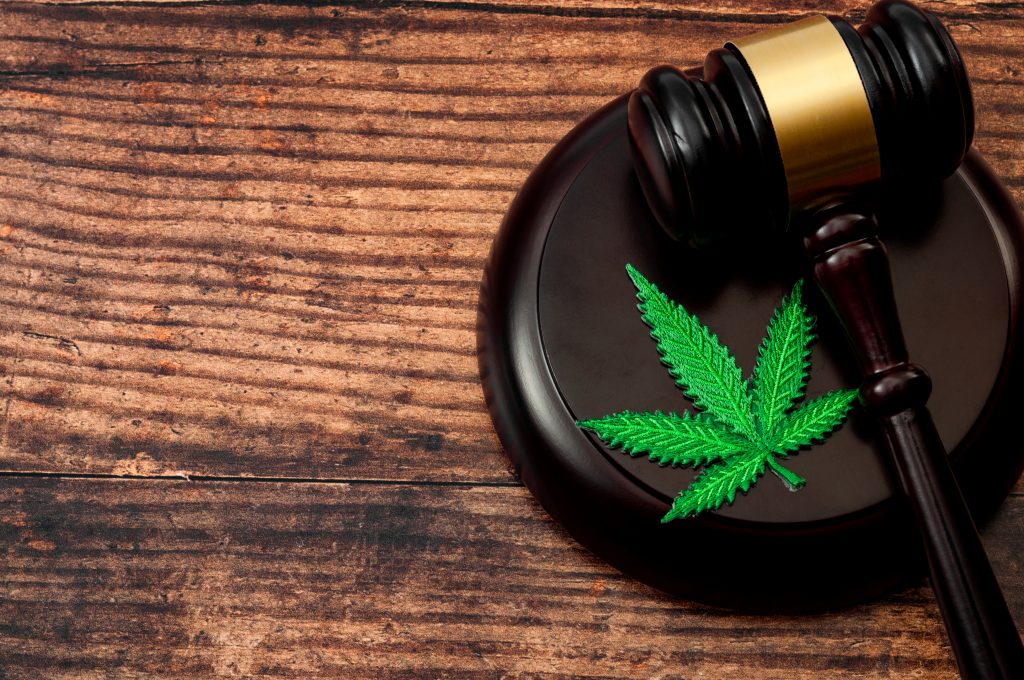
This definition puts synthetics and non-synthetics together. And if you’ll remember, the definition of hemp, is for compounds directly sourced from the hemp plant. As the definition of hemp does not cover synthetics, all cannabis synthetics remain illegal federally as per the previously stated law.
As an only synthetically-derived cannabinoid, this squarely answers the question of the legality of delta-10 THC, making it strictly federally illegal. Why does this not entirely apply to delta-8 THC? Because delta-8 THC is naturally occurring. The current USDA ruling did nothing to clarify the legal loophole of delta-8, with some still saying because its naturally occurring, it’s legal, and others pointing to the processing necessary to create it, making it synthetic.
Right now, delta-8 remains gray area, but unless the definition of hemp changes to include synthetics, the legality of delta-10 is not as gray, and the compound doesn’t make it into the industrial hemp loophole.
The Legality Of Delta-10 THC – Conclusion
There you have it… delta-8 is still gray area depending on whether it gets defined as a synthetic or not. On the other hand, the legality of Delta-10, as a purely synthetic cannabinoid, is different, and the compound remains illegal on a federal level. Luckily, with a growing number of legalized locations throughout the US and the rest of the world, there are still plenty of markets that can legally sell this option. And since laws are still forming and kinks in this industry have a long way to being worked out (as evidenced by the new USDA ruling which does nothing to clarify delta-8 further), there should be plenty of ways to obtain this newer version of THC, for anyone who wants it.
Welcome! Thanks for joining us at CBDtesters.co, your one-stop-shop for all the most relevant cannabis-related news from around the world. Drop by every day to stay on top of the ever-changing world of legal cannabis, and sign up for our newsletter so you never miss a story.
Resources
Finding the Balance Between Holiday Spirit and Commercialism this 420
Delta-8 THC Delivery Methods: Best Way to Get It in You
420 stories: The History of How 4/20 Came to Be
Delta 8 / 9 / 10 / 11… How Many THCs Are Out There?
New Vaping Bill: Effective April 26th No More Mail Order Of CBD & Delta-8 THC Vape Carts
What is DELTA 8 THC (FAQ: Great resource to learn about DELTA 8THC)
Sparing 420, Vape Ban Goes Into Full Effect 4/27
The CBD Flowers Weekly newsletter (your top resource for all things smokable hemp flowers). The Many Faces of Tetrahydrocannabinol – Different Types of THC and Their Benefits
Florida Bill Aims to Legalize Medical Magic Mushrooms
The Delta 8 Weekly Newsletter (All you need to know about Delta 8 thc) and the Best Delta 8 THC Deals. The Marijuana Conspiracy and the Strangest Experiment in Modern History
DIY: How to Make Delta-8 THC at Home Delta-8 THC and Athletics – Why the Two Go Together Delta 8 Syringes, the Best Vape Ban Workaround
Delta-8 THC Exploits Fantastic Legal Loophole MDMA – The New Way to Treat PTSD
Delta-8 THC and the UK: Is It Legal?

Disclaimer: Hi, I’m a researcher and writer. I’m not a medical professional, I have no formal legal education, and I’ve never been to business school. All information in my articles is sourced from other places, which are always referenced, and all opinions stated are mine, and are made clear to be mine. I am not giving anyone advise of any kind, in any capacity. I am more than happy to discuss topics, but should someone have a further question or concern, they should seek guidance from a professional in the relevant field for more information.


